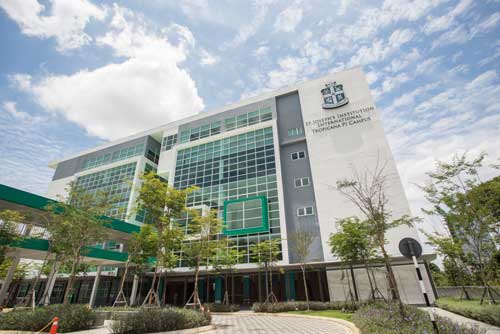 Synopsis
Synopsis
This article explains what is meant by ‘Humanities’. It gives an overview of the knowledge, skills, and conceptual understanding that is developed in the study of Humanities, and provides an insight into what students in Years 7-9 at SJIIM will experience in the Humanities classroom. It concludes with a description of how the study of Humanities in Years 7-9 prepares students for the IGCSE courses and examinations.
What is Humanities?
Humanities is a branch of knowledge concerned with human beings and their culture. As well as developing the knowledge, skills, and understanding to prepare students for future study of Humanities subjects at IGCSE and IB level, the Humanities curriculum at SJIIM also aims to develop students’ knowledge of human history, behaviour, culture, processes, and ways in which we interact with each other and the world around us. While at IGCSE and IB level this includes a range of subjects (History, Geography, Business Studies, and Economics), in Years 7-9 students focus on History and Geography, with one semester of History and one semester of Geography, switching over following the Term 2 half-term break. The Humanities curriculum in Years 7-9 can be broadly divided into knowledge, skills, and concepts.
What content knowledge will be developed in Humanities?
The development of knowledge is central to the Humanities curriculum. Without relevant contextual knowledge, students will struggle to develop the skills and conceptual understandings. In History in Years 7-9, students develop knowledge about major events and periods that have shaped the world we live in. For example, they developments in Europe and China in the Middle Ages, intellectual revolutions such as the Renaissance, World Wars, and important developments in humanity such as the abolition of the trans-Atlantic slave trade, are just some of the topics covered. We also bring in some local history, such as British and Japanese imperialism in the Malayan peninsula.
Geography in Years 7-9 is composed of human and physical Geography. Human Geography topics cover areas such as population, settlement, and international development, whereas physical Geography looks at the processes that shape our environment, such as weather and climate, rivers, coastal erosion, and natural disasters. For the final unit in each year, students focus in on one region of the world and examine in detail the human and physical attributes of that region to apply their knowledge and skills developed in the first two units.
What skills are developed in Humanities?
In both History and Geography students develop common skills such as communication (reading, writing, speaking, describing, explaining etc.), collaboration (working effectively with partners or in groups), thinking skills (critical and creative), and research skills. Each of these skills is assessed explicitly as a separate criterion on the Humanities assessment rubrics, to enable the tracking of students’ development in these skills throughout years 7-9. There are also skill sets unique to each subject, such as source analysis and evaluation in History, and map skills, graph skills, and analysing geographical data in Geography. Again, students’ development in these skills is regularly assessed and tracked through the assessment rubrics.
What are the key concepts in Humanities?
As well as skills, students develop an understanding of the key concepts in the two subjects. Concepts are transferable ideas that transcend time, place, and situation. In History, this consists of the concepts of causation (why events in the past happened), consequence (the impact of past events), change (the difference between periods in History), continuity (the similarity between periods in History), and significance (the wider impact of events on the course of humanity). For example, when studying the Holocaust, students will examine the various reasons why it took place, the short term and long-term effects, comparisons with genocides before and since, and the lessons humanity can learn from such events. In Geography, students develop an understanding of the geographical concepts of place, space, scale, interdependence, physical and human processes, environmental interaction, and cultural understanding. For example, when completing a unit on Asia, students will look at the location of different countries and regions in Asia, the climate, the interaction of life and the physical environment, the population structure and distribution, and economic growth.
How does Humanities in Years 7-9 prepare students for the IGCSE?
The Humanities curriculum in Years 7-9 has been backward planned from the IGCSE courses. Therefore, the knowledge, skills, and conceptual understanding required in IGCSE are built up from Year 7, so that by the time the students move into Year 10 the foundations are in place to enable them to succeed in their IGCSEs. For example, in the History IGCSE assessments, students are required to write essays and evaluate source material. Each of these skills also forms the basis for at least one assessment in Year 7, 8, and 9. Likewise, in IGCSE Geography students are required to analyse geographical data, and students will conduct at least one data analysis assessment in Years 7, 8, and 9 to build up their skills in this area.






